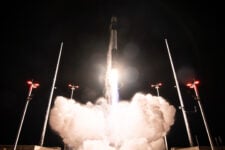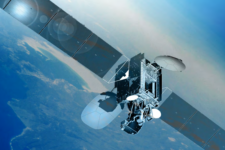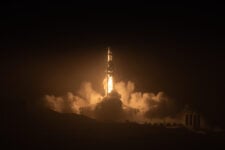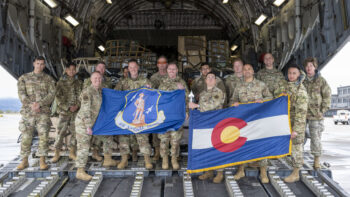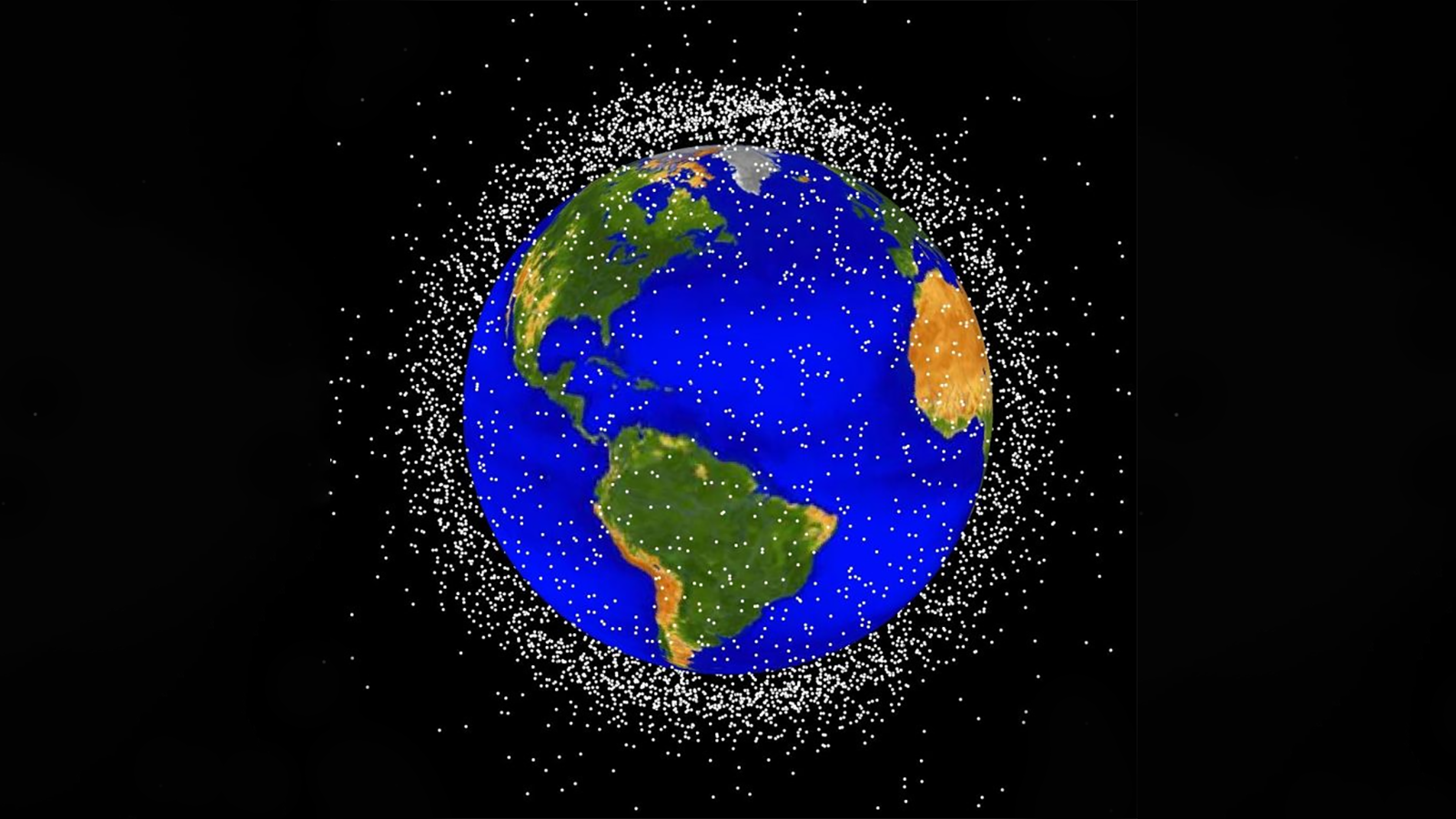
Space Command currently is keeping tabs on more than 44,000 satellites and pieces of space junk. (NASA image)
WASHINGTON — The Defense and Commerce Departments today announced a set of new contracts to underpin their joint project to pilot a new civil space monitoring service, one designed to replace the Pentagon’s current role tracking objects in space for commercial and foreign satellite operators.
The two departments have issued contracts for space situational awareness (SSA) data analysis to seven vendors: COMSPOC Corp., ExoAnalytic Solutions, Kayhan Space, KBR, NorthStar Earth & Space Inc., Slingshot Aerospace and the Space Data Association.
“These commercial purchases will support real-time civil spaceflight safety functions, including satellite tracking, spaceflight safety analysis and notification and anomaly detection and alerting over a two month period starting December 5, 2022,” according to a press release issued by Commerce’s National Oceanic and Atmospheric Administration (NOAA), which is responsible for licensing commercial remote sensing operators.
“The pilot project aims to demonstrate capability of U.S. commercial data products, analytics and services to provide holistic spaceflight safety mission assurance in the MEO and GEO orbit regimes. The pilot will involve members of the Space Data Association to collect feedback from commercial satellite operators on the usefulness of the service provided,” today’s announcement added.
As a result of the 2018 White House Space Policy Directive-3, NOAA was tapped to take over Space Command’s mission of providing SSA data and warnings of potential collisions to non-military satellite operators around the world. The goal is to give SPACECOM’s 18th Space Defense Squadron more time to focus on its mission to detect and monitor potentially threatening adversary spacecraft. The effort is being led by NOAA’s Office of Space Commerce.
DoD and Commerce on Sept. 7 finalized a long-awaited memorandum of agreement setting out a framework agreement for future cooperation on space monitoring.
The pilot, announced by Office of Space Commerce Director Richard Dalbello on Sept. 30, is focused on space operations in medium Earth orbit (MEO) and geostationary Earth orbit (GEO). At that time, NOAA announced it had awarded five commercial data contracts for GEO space object tracking data to support the pilot; those contracts are different than the ones announced jointly with DoD today.
The ultimate goal is for NOAA to build up an SSA service that covers operations in all orbital regimes, including increasingly crowded low Earth orbit, based on data and analytical capabilities provided primarily by commercial firms rather than US military owned sensors (telescopes and radar). This would allow for easier and more widespread sharing of SSA data that can help keep on orbit operations safe.
In a Taiwan conflict, tough choices could come for Big Tech
Washington could do more to incentivize tech companies to distance themselves from China, but CEOs should examine how they’d react to a fight in the Pacific, CSET’s Sam Bresnick and Emelia Probasco argue.








